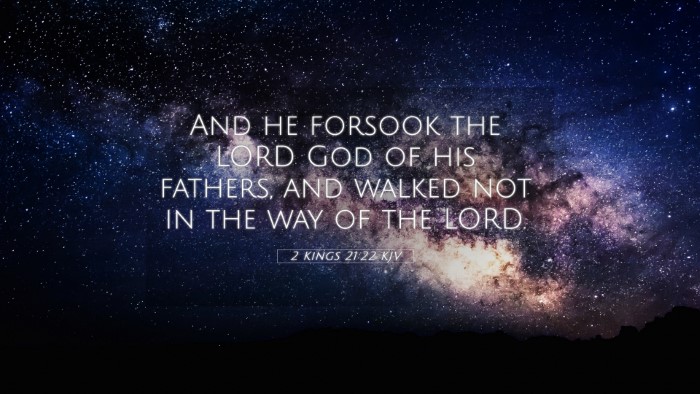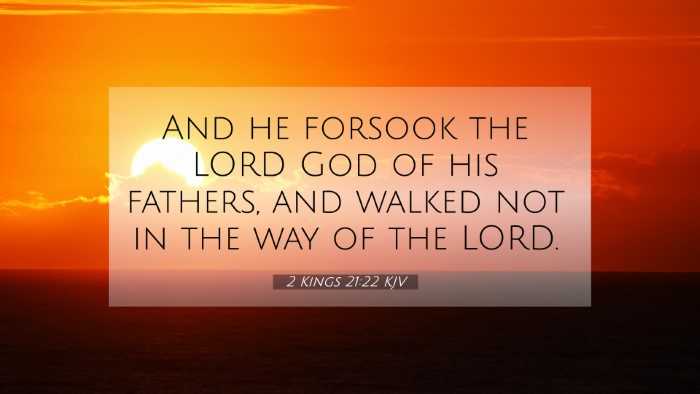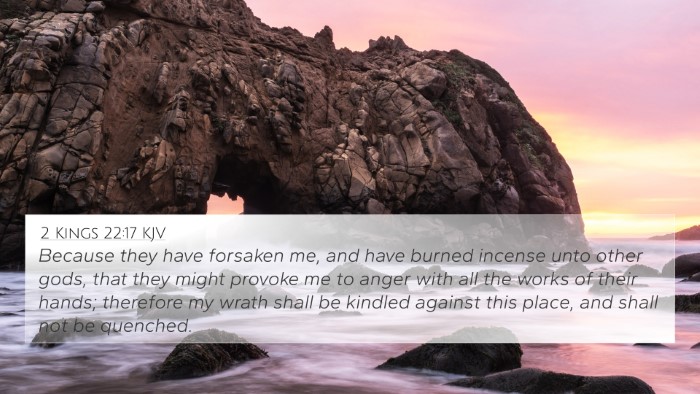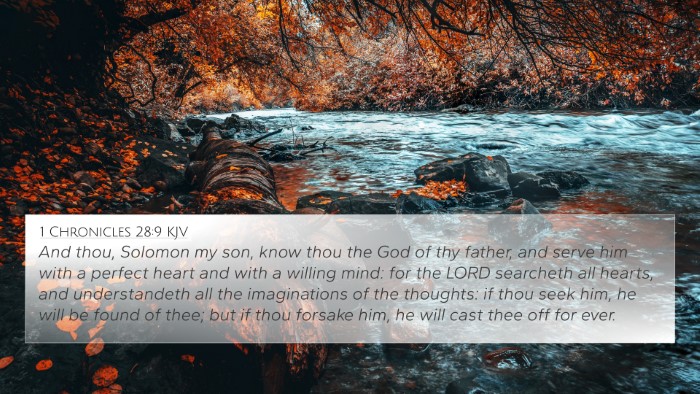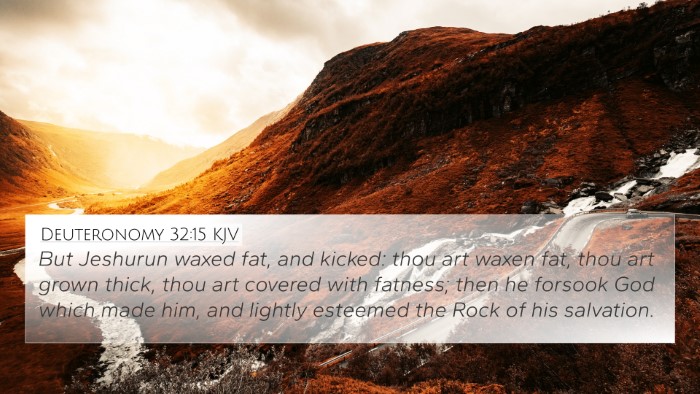Understanding 2 Kings 21:22
This verse captures a pivotal moment in the biblical narrative concerning King Manasseh of Judah, highlighting his actions and their divine repercussions. In 2 Kings 21:22, it states:
"And he forsook the Lord God of his fathers, and walked not in the way of the Lord."
Verse Meaning and Context
King Manasseh's reign is marked by significant transgressions against God. This passage emphasizes his forsaking of the Lord, which led him away from the ways prescribed by his ancestors.
Matthew Henry notes that Manasseh not only abandoned the worship of Yahweh, but he also engaged in practices that were considered abominable, leading the nation into deeper sin. This abandonment showcases a drastic shift from his grandfather Hezekiah's faithfulness.
Albert Barnes provides insight into the broader implications of this forsaking, suggesting that Manasseh’s failure to adhere to God's commands led to divine judgment and a decline in the spiritual state of Israel. His actions represent a direct challenge to the covenant established between God and His people.
Adam Clarke elaborates further, pointing out that Manasseh’s leadership set a poor spiritual example. He implicates how leaders greatly influence their people’s faith and practices, cautioning that forsaking God has reverberating consequences throughout a community.
Thematic Bible Verse Connections
This verse lays a foundational understanding for several themes within the scripture. The act of forsaking God generates connections with various other biblical texts that illustrate similar behaviors and the resulting consequences.
- Deuteronomy 31:16-18 - God warns Israel that they will turn to other gods and forsake Him.
- Jeremiah 2:13 - God laments that His people have forsaken Him, the fountain of living waters.
- Ezekiel 14:6 - A call to repentance for Israel’s idolatry and abandonment of God.
- 2 Chronicles 33:9 - A parallel account of Manasseh's actions and their impact on Judah.
- Romans 1:21 - A New Testament reflection on the folly of forsaking the knowledge of God.
- Hebrews 10:29 - A dire warning against spurning the Son of God.
- Matthew 15:6 - Jesus condemns the traditions that lead people away from honoring God.
Cross-Referencing Biblical Texts
When studying 2 Kings 21:22, cross-referencing becomes essential to understand the depth of Manasseh's sin and its ramifications. Here are some tools and methods for effective cross-referencing:
- Bible Concordance - Use a concordance to locate similar themes and words across scripture.
- Bible Cross-reference Guide - These guides provide connections between verses, particularly in the Old and New Testaments.
- Cross-reference Bible Study - Engage in studies that focus on the links between scriptures for deeper understanding.
Inter-Biblical Dialogue
Manasseh’s actions prompt a broader discussion within the biblical narrative about leadership, fidelity to God, and the consequences of idolatry. The dialogues formed through these cross-references showcase the dynamics between the Old Testament's historical accounts and New Testament teachings.
For instance, the warnings given in Ezekiel resonate with the teachings of Jesus about the dangers of falling away from God. This creates a thematic link that reflects a continuity in the message of God's call for faithfulness throughout biblical history.
Conclusion
Understanding 2 Kings 21:22 requires a comprehensive approach that involves delving into historical context, thematic connections, and scriptural cross-referencing. Through examining this verse alongside its related passages, one gains a fuller understanding of the implications of forsaking God, both for individuals and for nations as a whole.
For anyone studying the Bible, these connections between Bible verses provide a richer tapestry of meaning and a clearer understanding of God’s character and expectations of His people.

